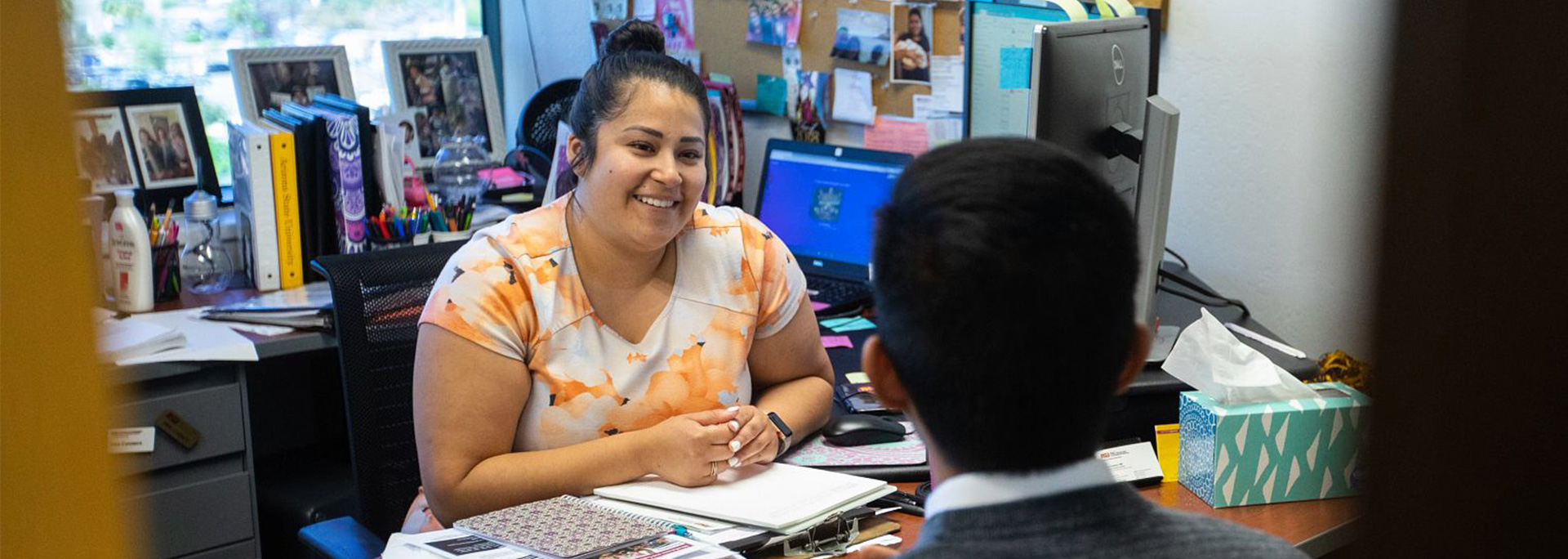
Medical and compassionate withdrawal
Learn how to complete a withdrawal form in the case of medical and situational circumstances.
Learn about withdrawals
Sometimes, difficult circumstances challenge a student’s ability to complete a course. In such cases, special withdrawal options may be appropriate.
A medical withdrawal may be requested when extraordinary medical circumstances, such as a serious illness or injury, prevent the student from continuing in classes. This policy covers both physical and mental health difficulties.
A compassionate withdrawal may be made in extraordinary cases in which a significant personal situation (for example, the student is instrumental in the care of a seriously ill child or spouse, or the death of an immediate family member) prevents a student from continuing in classes.
Medical/compassionate withdrawals may be considered when other arrangements with instructors are not appropriate or available, or when restricted withdrawals and other enrollment options are not possible/feasible.
All requests require thorough and credible documentation. Usually, consideration is for a complete withdrawal. Application for less than a complete withdrawal must be especially well-documented to justify the selective nature of the request. It is your responsibility to ensure appropriate forms and documents are included and complete. However, completing the process does not guarantee or ensure approval; each case is reviewed individually. The medical designee may seek additional information from you, from your instructors, or from those providing the documentation. Verification of authenticity of documentation is standard practice.
If you are receiving financial assistance, you are strongly encouraged to consult with a Student Financial Assistance Counselor to identify and understand the financial assistance/monetary implications of processing this withdrawal transaction.
To request a documented medical/compassionate withdrawal:
- Go to MyASU to confirm that the Walter Cronkite School of Journalism and Mass Communication is your home college. Complete the Medical/Compassionate Withdrawal Form. If you need a writeable PDF form, please email cronkitemcw@asu.edu to request one. Again, if you are receiving financial aid, please contact the Financial Aid Office to understand the implications of this withdrawal. International students with an F1/J1 visa must obtain the signature of the adviser in the International Students and Scholars Center prior to submitting the request. If requesting a Medical/Compassionate Withdrawal for more than one semester, each semester of coursework must be on a separate form. Your documentation should address the time frame for each semester you were affected.
- Compose a brief personal statement describing the situation leading to your seeking the withdrawal. The statement must explain specifically why and how the emergency circumstances prevented you from completing your assignments and participating in classes during the requested term. You must include the last date you attended or participated in classes.
- Request relevant documentation appropriate to your situation. For a documented medical withdrawal, the University requires an original letter from the attending medical or mental health care provider, on their letterhead, that specifies:
- The date of onset of illness in the requested term
- The last date you attended/participated in class(es) in the requested term
- The dates you were under professional care in the requested term
- The general nature of your medical condition and specifically how and why it prevented the student from completing coursework during the requested term
- The date of anticipated return to school
- Health care provider’s release to return to classes (if applicable)
It is suggested that you share these requirements with the health care provider. Discharge paperwork, office visit summaries, receipts, appointment cards, lab results, etc. will not be accepted as a substitute for the letter.
For a documented compassionate withdrawal, if seeking withdrawal due to emergency medical conditions of a child, spouse or elderly parent, a letter from the attending health care provider is required, on their letterhead. The letter must specify:
- The relationship of the patient to the student
- The date of onset of illness in the requested term
- The dates under professional care in the requested term
- The general nature of the medical condition and specifically how and why it prevented the student from completing coursework during the requested term
In the case of the death of a child, spouse or family member, a copy of the death certificate is required. If you traveled out-of-state for services, as copy of the publicly available obituary and travel itinerary is suggested.
It is suggested you share these requirements with the health care provider. Discharge paperwork, office visit summaries, receipts, appointment cards, lab results, etc. will not be accepted as a substitute for the letter.
Health care providers may email their letter to cronkitemcw@asu.edu. If unable to email their letter, they mail it to Mary Cook at the address listed below under submission of materials.
Submit Medical/Compassionate Withdrawal materials to:
Mary Cook, cronkitemcw@asu.edu
If you are unable to scan and email documentation, you may mail it to Mary Cook at 555 N. Central Ave., Suite 302, Phoenix, AZ 85004. If you are dropping off documentation in person, please bring to the Advising and Student Services Suite, Cronkite 222. Please view the ASU Policy.